
Things to skip when you’re sleepy
There are some things you just shouldn’t do when you’re exhausted. You likely wouldn’t jump behind the wheel for a long road trip or start a home improvement project, but there are plenty of other surprising things you shouldn’t do when sleepy. You shouldn’t pick a fight with your partner or go grocery shopping, for example. And save that heavy workout for another day. While you’re trying to figure our how to stay awake after a restless night, here are the things you should avoid when you’re really tired.
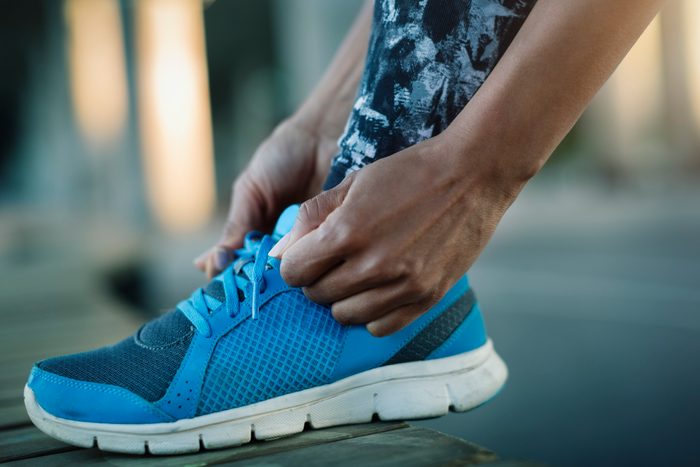
Don’t: Exercise full force
Whether you’re running around the neighborhood or climbing on your basement treadmill, take it easy when you’re tired.
“Working out [hard] when you’re tired is a waste of time if you don’t have the energy to keep up with your regular routine,” says William Suggs, a certified personal trainer and licensed sports nutritionist in New York City. Instead, focus on light cardio like walking, biking, or the elliptical, which lets your arms help propel you through the workout. If you must pump some iron, stay away from free weights and stick to circuit machines, which are specifically designed to protect you from injury, says Suggs.
Speaking of injury, you’re more likely to tweak a muscle or cramp up when you’re tired, especially your back. “You’re more prone to injury when you’re fatigued because it’s harder to focus on your workout and on engaging your core, which stabilizes you,” says Suggs.
Eat a piece of fruit for a healthy pre-workout energy rush. “You won’t feel jittery but the simple sugars will keep your tank going,” says Suggs. (Here are some medical reasons you could be tired all the time.)
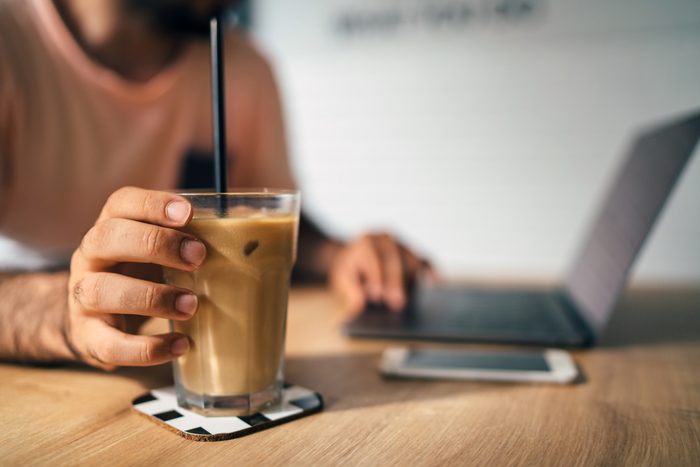
Don’t: Guzzle caffeinated beverages
Knocking back coffee all day may seem like the best way to power through a difficult Monday. But you’ll crash and feel sluggish once the caffeine boost wears off. Keep in mind that caffeine has a half-life of up to five hours, which means that five hours later about half of what you ingested remains in your system. “You won’t feel that surge of energy but your brain knows caffeine is there, which can impact your ability to sleep at night,” says Daniel Barone, MD, a sleep expert at Weill Cornell Center for Sleep Medicine at New York-Presbyterian Hospital. His rule of thumb: Cut off caffeine consumption after 1 p.m.
Next time you’re dragging, swap out your afternoon coffee with a natural energy boost like a glass of water, an apple with peanut butter, or a quick walk outside.
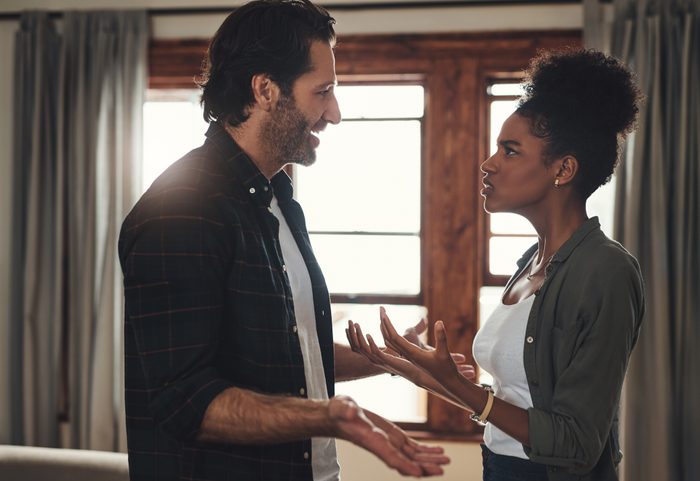
Don’t: Pick a fight with your partner
When you’re tired, a mild disagreement can quickly escalate. Sleep deprivation makes it harder to control emotions, according to UC Berkeley and Harvard Medical School research published in 2007 in Current Biology. “It’s almost as though, without sleep, the brain … is unable to put emotional experiences in context and produce controlled, appropriate responses,” said study senior author Matthew Walker, director of UC Berkeley’s Sleep and Neuroimaging Laboratory. Another study co-authored by Walker and published in the Journal of Neuroscience found that it’s harder to accurately read facial expressions when you’re tired, which means you’re more likely to misinterpret your partner’s intentions.
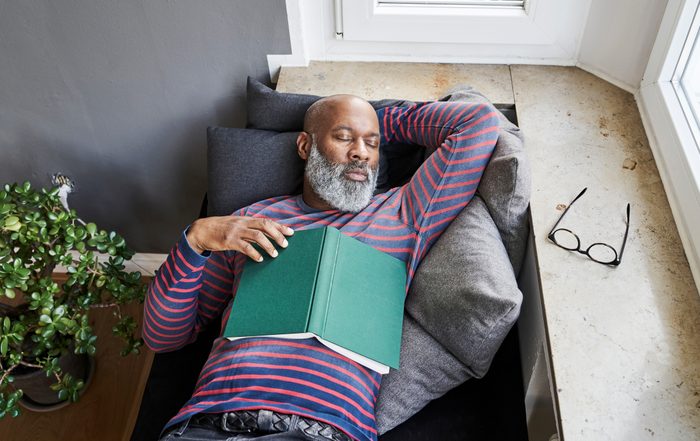
Don’t: Take a nap
A nap is a good idea, but only if you nap the right way. Sleeping too long or too late in the day can make it harder to sleep at night, which means you’ll still be tired the next day, says Dr. Barone. For a jolt of alertness without sabotaging your bedtime, the perfect nap is 20 to 30 minutes as early in the day as possible, he says. Check out these tips for taking a nap that will actually energize you.
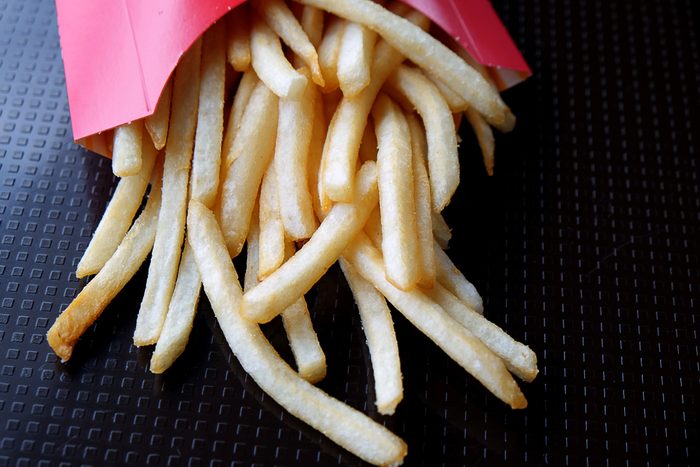
Don’t: Cave to junk food cravings
Studies show that a sleep-deprived brain craves fatty, high-calorie foods because the regions that control decisions are blunted and those linked to desire are amplified. Translation: Junk foods are harder to resist. “When you’re tired your body is looking for a dopamine release, so eating your favorite unhealthy food will feed your brain and make you happy,” says Suggs. If ordering takeout is all you can muster, opt for steamed vegetables and a lean protein like chicken with brown rice from your favorite Chinese spot, says Suggs. “It’s a balanced meal—whole grains, protein, veggies—without the effort.”
Another tip: Stay away from the grocery store. One study published in Obesity in 2013 from Uppsala University in Sweden found that sleep-deprived shoppers purchased more and higher-calorie food than they would have when not tired.
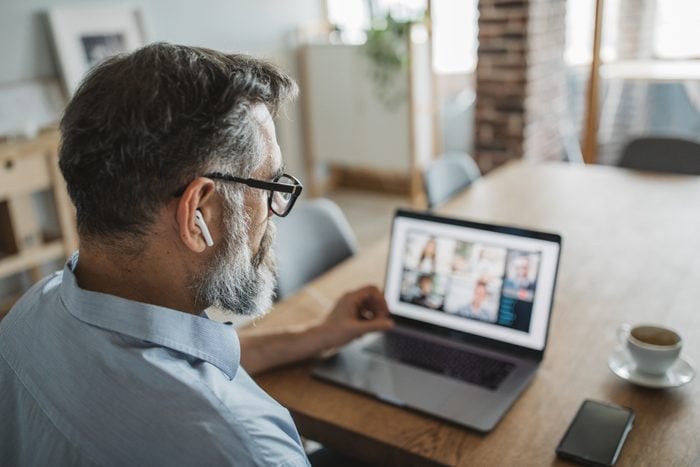
Don’t: Tackle an important project at work
If you can, save that important chat with your boss for a day when you feel much more alert. A study from Duke University Medical Center published in 2011 in the Journal of Neuroscience found that sleep-deprived adults were more likely to perceive something as positive and less likely to recognize negative outcomes. That means a decision you made when tired might not look so good when you’re rested and refreshed.
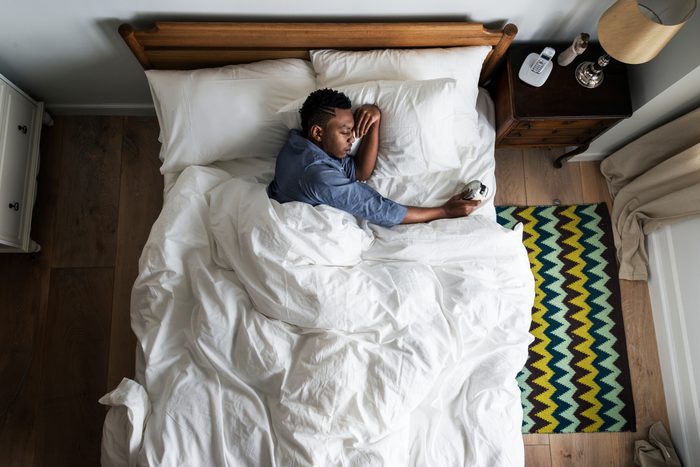
Don’t: Stray from your normal sleep schedule
It can be tempting to go to bed early or hit the snooze button a few times when you’re tired, but resist the urge. Throwing off your sleep pattern can put you on an exhausting and erratic cycle that prevents you from getting quality sleep. “Sleeping at odd hours and at different times messes up our natural sleep cycle,” says Jacqueline Blakely, naturopathic doctor at Holtorf Medical Group. When you go to bed at the same time and wake at the same time, your body knows that it’s time to sleep. Try to get seven to eight hours of sleep a night, even when you’re tired, says Dr. Barone.
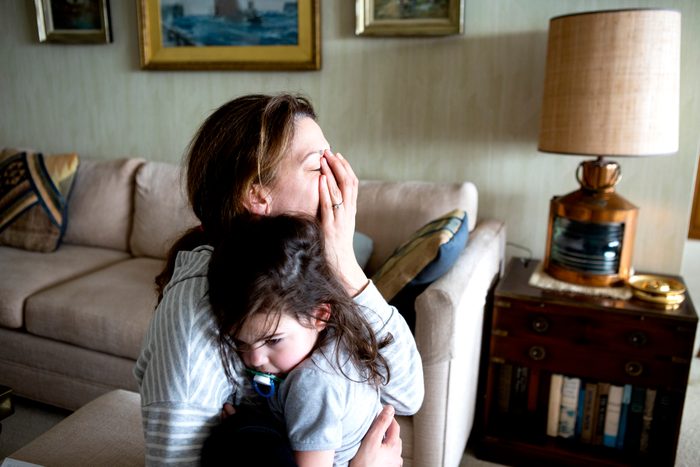
Don’t: Trust yourself to gauge how tired you really are
Sleep deprivation makes it harder to assess how tired you truly are. You might take on more than you can handle if you convince yourself you’re fine. Studies have found that people who went without sleep rated themselves as not feeling tired but made more errors when given an activity to complete. “Don’t try to gauge how tired you are. The bottom line is, you’re tired,” says Dr. Barone. “It’s a good idea to save any big decision or task for when you’re thinking clearly.” (Here are everyday things that drain your energy.)
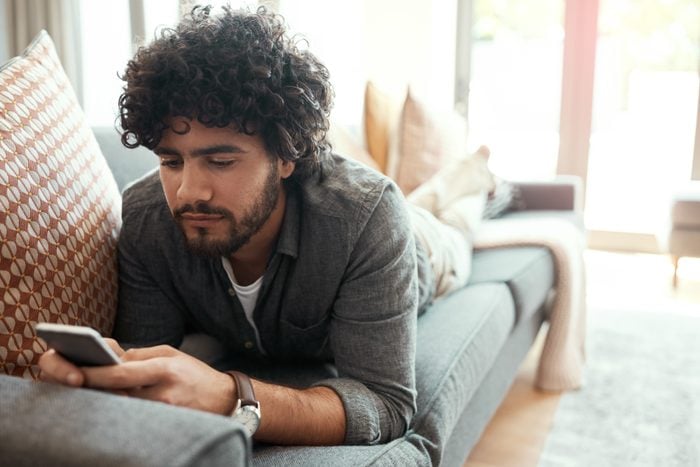
Don’t: Go on social media
You may think that scrolling through your Facebook feed is a nice, relaxing activity, well-suited to times when you’re already feeling tired and lazy. But don’t fall into that trap. First of all, when you’re tired, your judgement and self control might not be at full capacity, and you’ll be more inclined to post something you later regret. Plus, perusing your phone right before you try to sleep actually can keep you awake longer. The light coming from your phone or computer can affect your brain in a similar way to daylight. (Learn more about why blue light is bad for sleep.)
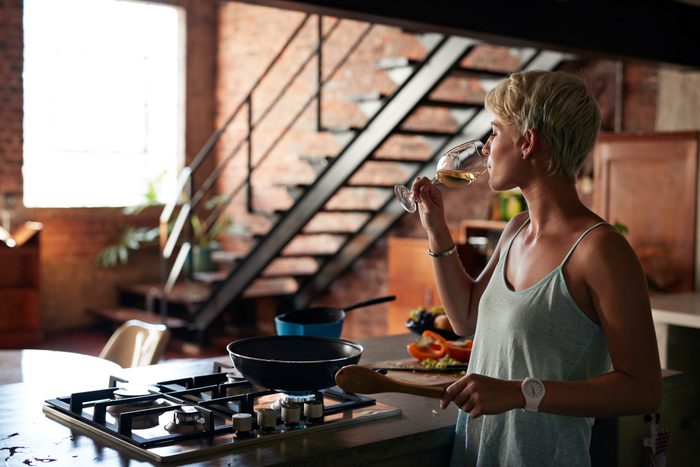
Don’t: Have a drink
Think a glass of wine before bed might help you rest? Think again. Drinking alcohol before bed might make you fall asleep faster, but it can actually impair REM sleep, the deepest type of sleep, and might even wake you up later in the night or early morning. Research, including a study published in 2014 in the Handbook of Clinical Neurology, suggests that it alcohol reduces quality sleep, disrupting the body’s natural homeostasis.
Here are some other things you should never do before bed if you want a good night’s sleep.